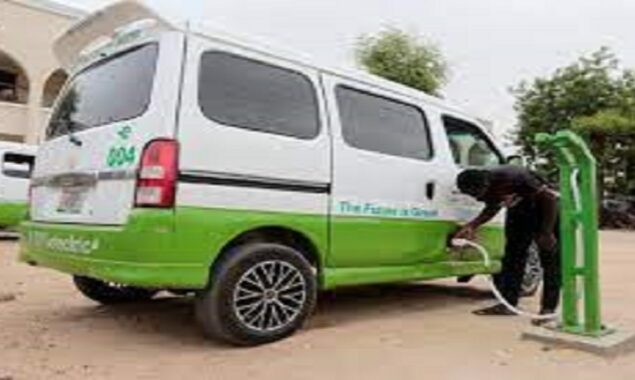Indonesia pushes use of electric vehicles for green energy transition
JAKARTA - Indonesia is pushing electric vehicles (EVs) adoption as an effort...

Entrepreneur builds electric mini buses in clean energy push
Mustapha Gajibo, a Nigerian entrepreneur, has been converting petrol minibuses to electric vehicles at his workshop, but he is now taking it a step further by designing and building solar battery-powered buses from the ground up in an effort to promote sustainable energy and reduce pollution.
Africa’s largest crude oil producer and exporter has substantially subsidised gasoline and sporadic energy supplies, a combination that could deter anyone from investing in electric vehicles.
Gajibo, a 30-year-old university dropout from Nigeria’s northeastern city of Maiduguri, is unfazed. Electric vehicles, he claims, are a viable alternative in Nigeria due to rising global oil prices and pollution
He has already pulled the combustion engines off ten minibuses at his workshop and replaced them with solar batteries. He claims that the buses, which have been in service for just over a month, can travel 100 kilometres on a single charge.
His most ambitious idea is to construct the buses from the ground up. They will have solar panels and batteries installed.
“Right now, at our workshop, we’re building a 12-seater bus that can travel up to 200 kilometres on a single charge,” Gajibo explained.
“By the end of this month, we’ll be unveiling that bus, which will be the first of its sort in Nigeria,” he claimed, adding that his workshop could make 15 buses every month.
Electric vehicles have failed to acquire hold in Nigeria, as in the rest of Africa, because they are more expensive and there is a lack of electricity and charging infrastructure.
Gajibo currently has one solar-powered charging station.
Other obstacles, such as foreign currency shortages, make importing parts problematic. As a result, he’s seeking for them in Nigeria.
“We’ve been replacing some commodities with local ones to reduce expenses and increase profit,” Gajibo explained.
Catch all the International News, Breaking News Event and Latest News Updates on The BOL News
Download The BOL News App to get the Daily News Update & Follow us on Google News.